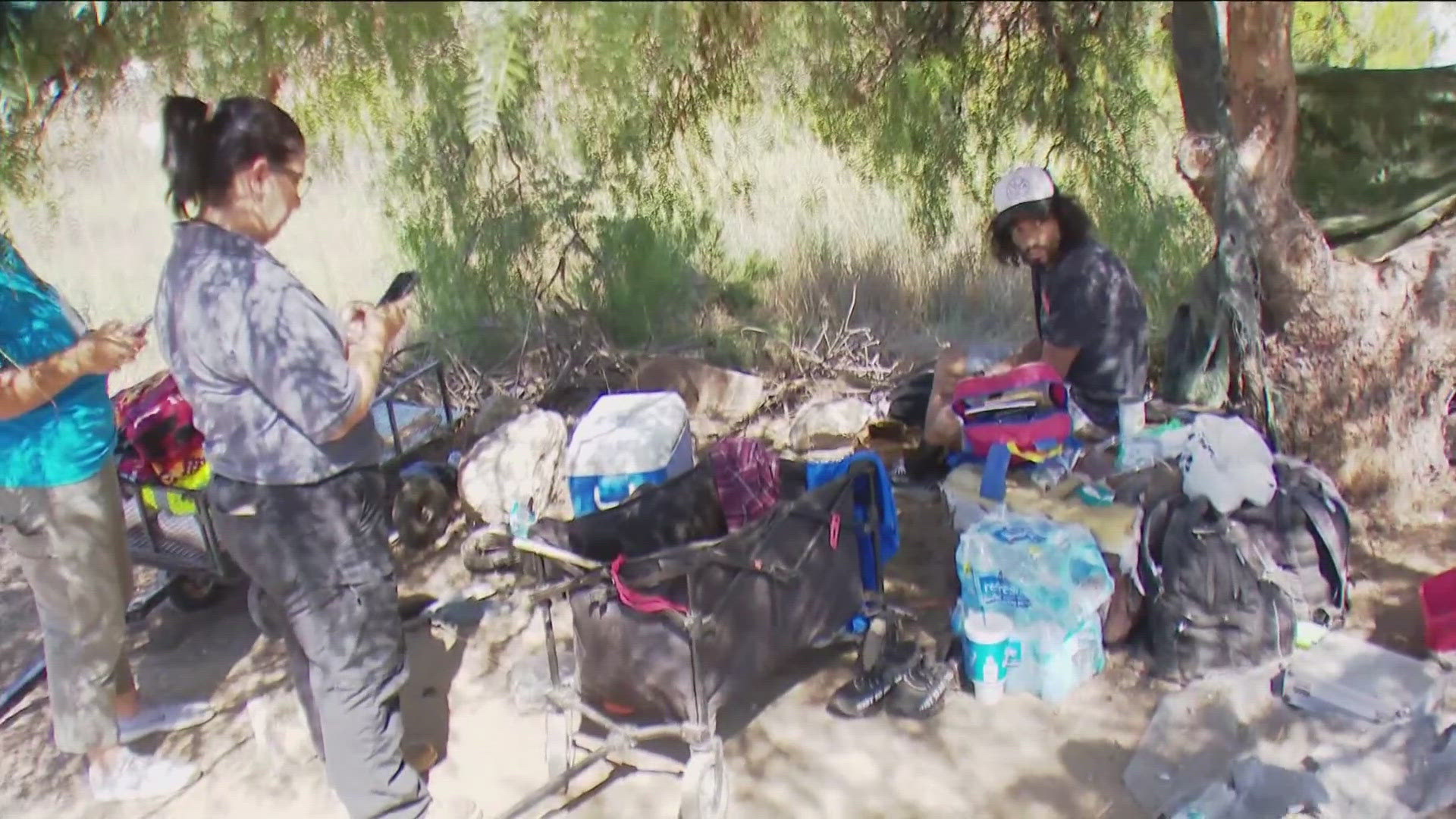RAMONA, Calif. — With cities all across San Diego County implementing bans on encampments, law enforcement is faced with a tough task. Enforcement of the new laws can require a delicate balance of compassion and concern for public safety.
CBS 8 rode along with deputies Tuesday in an unincorporated area of Ramona, where there is no such ban, to see firsthand how they're handling interactions with the unhoused population on County property.
“Good morning, Sheriff’s Homeless Outreach!” said Deputy Megan Smith as she and her partner approached an encampment not far from the Ramona public library.
“You talked to our social workers last time, right?” asked Deputy David Smith to an unhoused individual standing beside his tent.
The two deputies were part of the Sheriff's Homeless Assistance Resource Team (HART). They were accompanied by social workers from Health and Human Services with the goal of connecting people to services and benefits they might be entitled to like food stamps and other programs.
“Arturo, is there any other people staying over here that might need some assistance?” asked Deputy Megan Smith to an individual whose belongings were scattered under a tree.
One of the challenges the outreach team faces is that 90% of the people contacted don’t want any help and refuse it, which is why team members revisit some of the same spots every week.
“The more times we come out to see them, the more they decide to trust us and they know that we’re there to help, and they see that the programs are legit,” explained Deputy Megan Smith.
Since fentanyl is a known problem, several doses of NARCAN were handed out by deputies to people throughout the morning in an attempt to prevent overdoses.
Deputy David Smith asked one woman, “Are you interested in carrying some NARCAN in case you come across somebody that might need help?” The woman said, "Yes," and stashed a box of it in her backpack.
While there is no encampment ban in unincorporated areas of the County, some cities like Vista and San Marcos, which contract with the Sheriff's Department for policing, have recently passed such bans.
“We need the Sheriff’s partnership to be able to use jailing folks, who have been asked, some more than twenty separate times, to clean up their encampments, to go to the shelter, to accept the help that we’re offering,” said Mayor John Franklin as they began enforcing a ban in the City of Vista last week.
“I don’t want to jail people for living on the street, but when people are living in an encampment and have been asked twenty separate times to come to the shelter and to get off the streets and they still refuse, jail has to be a last and worst option,” said Mayor Franklin.
Sheriff Shelly Martinez told CBS 8 that they’ll address violations to the new law on a case-by-case basis. As far as arrests or jailtime, she added in a statement, “A violation of a city camping ban ordinance does not rise to the level of a bookable offense in the county jails. We will not jail individuals merely because they are living on the streets.”
Meanwhile, deputies on the HART Team in Ramona and other unincorporated areas of San Diego County are still focused on a "resources first" approach.
“As far as the Sheriff’s Department goes in the unincorporated areas, we’re just going to continue on the path of offering resources to these people, assisting with cleanups, and then assisting with getting them into programs,” said Deputy Megan Smith.
WATCH RELATED: Vista mayor shares how the city will enforce homeless encampment ban

